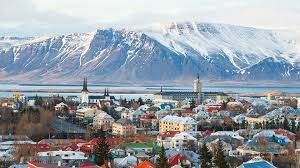Subscribe
Subscribe Now to receive Goldsea updates!
- Subscribe for updates on Goldsea: Asian American Supersite


Huang Nubo, the Chinese resort developer rebuffed by Iceland, is being wooed by other Scandinavian nations eager for investments to make up for a tourism slowdown caused by the financial crisis in the rest of Europe.
Huang had sought to build a massive eco-tourism resort in an icy stretch of Iceland through his Zhongkun Group. Iceland is struggling to recover from the 2008 collapse of its three major banks which brought the nation to the verge of insolvency and had been expected to welcome the investment. Instead the nation’s Interior Minister rejected Huang’s project on xenophobic concerns about foreigners buying up a large piece of land even if it is mostly frozen wasteland.
But Huang is getting a much warmer reception from the bigger Scandinavian nations. He and other Zhongkun executives met with Danish Trade Minister Pia Olsen Dyhr during her February visit to China. She invited them to visit her country and explore the possibility of investing there.
“I am more than willing to lead them personally on the tour,” she said after meeting Zhongkun vice president Xie Yong on February 22.
She suggested Zhongkun executives visit Copenhagen, Ordense and Greenland for the theme park they are considering building.
Officials from Finland and Sweden have also approached Huang for possible investments in their nations, believing that such investments will open the door to Chinese tourists who so far have not made Scandinavia a part of their travel itineraries. The region’s tourism, a traditionally important sector of their economies, has been hit hard by the European debt crisis.
Huang founded Zhongkun in 1995 after serving as a high official in the propaganda department of China’s central government. The group has since grown into a real estate and tourism conglomerate with assets in excess of 20 billion yuan ($3.16 billion). It operates a wide variety of resort and recreational properties across China and has been credited with saving a traditional Chinese village as a World Heritage site.
